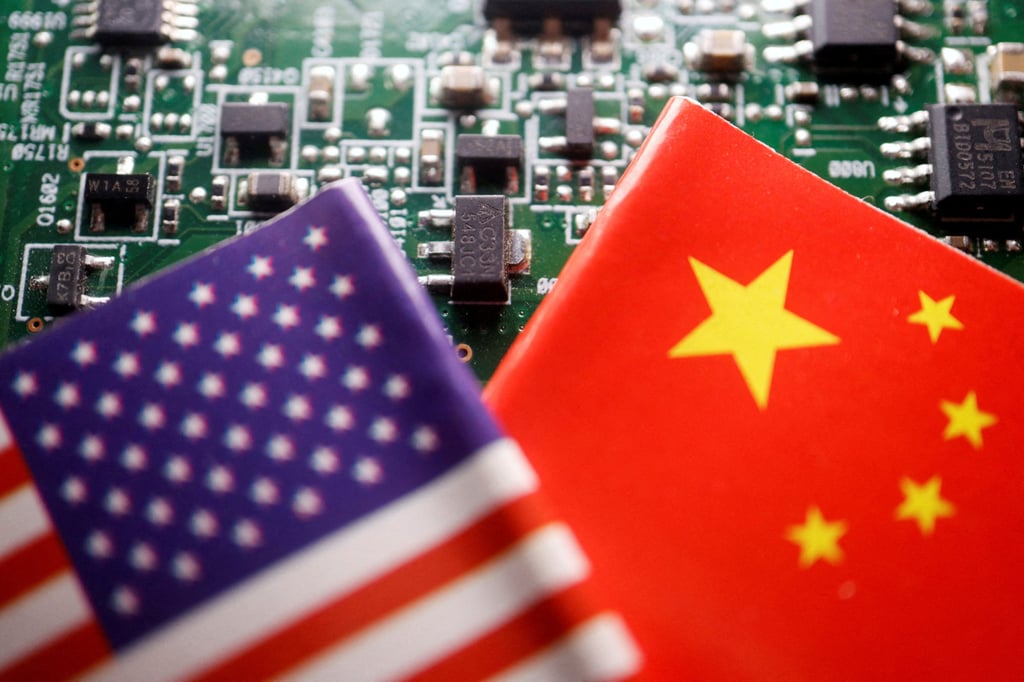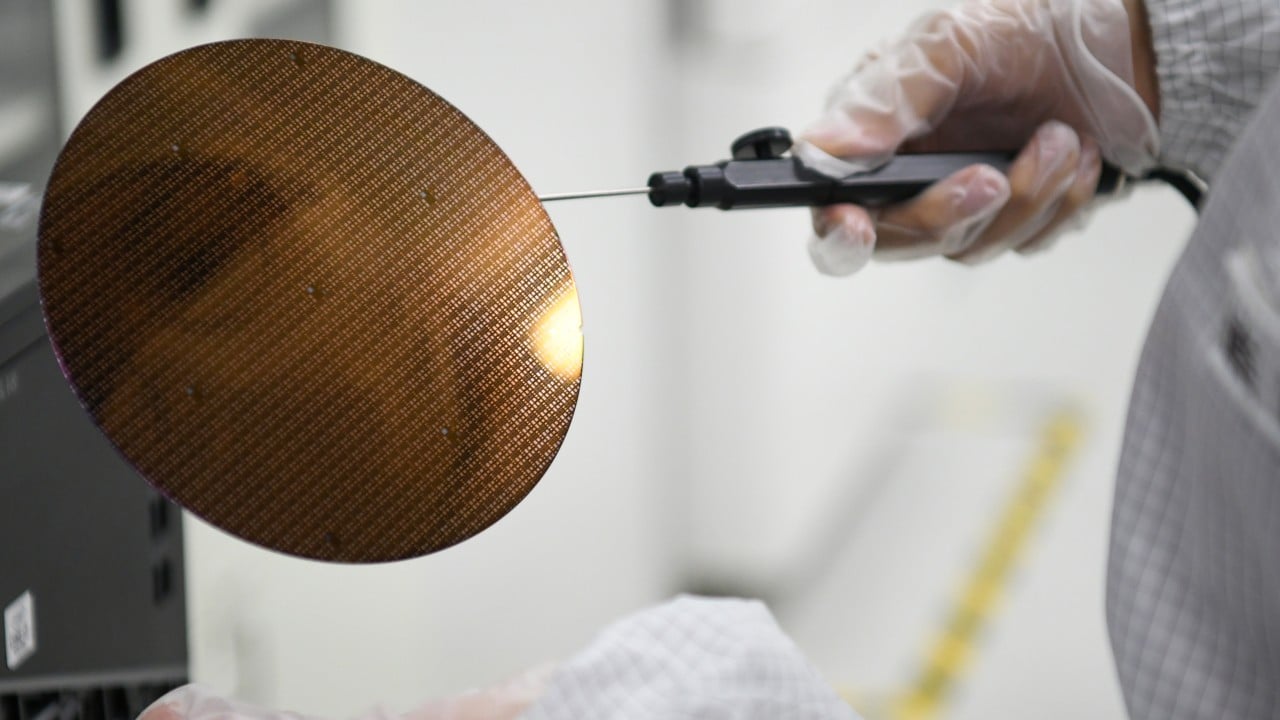Delegates at a Chinese semiconductor conference in Shanghai have called for “global cooperation”, sending a conciliatory message at a time when Washington and Beijing are intensifying a chip war.
Advertisement
At the Global Semiconductor Market Summit on Thursday, one of China’s first major chip industry gatherings since the Biden administration imposed new export restrictions, speakers largely avoided commenting on the issue, preferring to highlight the value of “global cooperation”.
Yang Songqiang, deputy secretary general of the World Integrated Circuit Association (WICA), a newly formed group that hosted the summit, said under current circumstances it was “more important than ever” to continue global cooperation in the semiconductor industry.
Ouyang Zhongcan, an academic at the Chinese Academy of Sciences, a top state research agency, said that “trade frictions” have caused serious disruptions to the chip industry. “These changes in the business environment not only raise operational costs for companies but also hinder communication and collaboration,” Ouyang said.

Another academic, Wu Hanming from the Chinese Academy of Engineering, said it was still important to build up “an ecosystem that is inclusive, open, and mutually beneficial” for the global chip industry.
Advertisement
Wang Xiangdong, chairman of Hefei Kaiyue Semiconductor, which is developing domestic alternatives for lithography systems, said a key bottleneck for China was the lack of access to advanced lithography machines, in particular extreme ultraviolet lithography (EUV) from Dutch supplier ASML, and Argon Fluoride (ArF) systems, due to US export controls.

